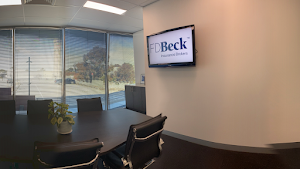- Professional Indemnity
Our ability to access markets, undertake portfolio reviews enables our client to make successful decisions
- Public Liability
Our ability to access markets, undertake portfolio reviews enables our client to make successful decisions
- Business Insurance
Our ability to access markets, undertake portfolio reviews enables our client to make successful decisions
- Consultants Insurance
When things go wrong, liabilities may affect your assets and reputation. That’s where FD Beck may help you through our competitive consultant and consulting business insurance.
- Advertising Agents Consultants
- Aged Care Consultants
- Agricultural Consultants
- Air Cargo Consultants
- Air Pollution Consultants
- Aquaculture Consultants
- Business Process Improvement Consultants
- Catering Consultants
- Change Management Consultants
- Communications Consultants
- Compliance Consultants
- Education Consultants
- Energy Efficiency Consultants
- Engineers & Construction
- Entomology Consultants
- Environmental Consultants
- Freight Forwarding
- Flora and Fauna Consultants
- Food Consultants
- Forestry Consultants
- Geological Consultants
- Government Consultants
- Health and Safety Consultants
- Heritage Consultant
- Home Sustainability Consultants
- Horticultural Consultants
- Hospital and Healthcare Consultants
- Hospitality and Hotel Management Consultants
- Human Resource Consultants
- Hygiene Consultant
- Image Consultant
- Industrial Relations Consultants Insurance
- Management Consultants Insurance
- Market Research Analysts Insurance
- Marketing Consultants Insurance
- Mediation Consultants
- Meteorologist Insurance
- Museum Consultants Curators
- Occupational Health and Safety Consultants
- Organisation Design Consultants
- Pool Safety Inspector
- Public Relations Consultant
- Quality Assurance Consultants
- Risk Management Consultants
- Recruitment Consultants
- Research and Policy Advisory Consultants
- Sewerage Consultants
- Solar Energy Consultants
- Strategic Planning Consultants
- Textile Consultants
- Traffic Management Consultant
- Waste Management Consultants
- Wine Industry Consultants
- Winemakers / Oenologists Consultants
- Workflow Efficiency Consultant
- Writers Consultants
- Owner Builder
Our ability to access markets, undertake portfolio reviews enables our client to make successful decisions
- About FD Beck
Our ability to access markets, undertake portfolio reviews enables our client to make successful decisions
Company
Insurance Mistakes Commonly Made by Australian Business Owners
In our experience, there are three common mistakes that business owners make when purchasing insurance. Hopefully, by highlighting these common mistakes below, we can help you avoid them.
Table of Contents
When it comes to purchasing business insurance, many owners focus solely on the premium and opt for the cheapest deal. However, when it’s time to make a claim, how much a business owner saved on the premium is quickly forgotten. Unfortunately, it is only at the time of lodging a claim it’s discovered that some businesses either don’t have the suitable insurance policies; don’t have enough insurance; or the insurance they have isn’t appropriate for their business activities.
In our experience, there are three common mistakes that business owners make when purchasing insurance. Hopefully, by highlighting these common mistakes below, we can help you avoid them.
Top 3 Business Insurance Mistakes to Avoid
1. The business fails to purchase the correct cover
Often, without the help of an insurance broker, a business does not understand the cover it needs. The most common example we see is owners insuring the physical assets of the business, but failing to purchase cover for Business Interruption. Typically, following a fire or flood or other major claim occurring at a business premises, some form of interruption to the business operation occurs. This interruption results in a reduction in turnover. Companies that don’t have Business Interruption insurance have little chance of surviving. Did you know that 43% of companies that experience disasters don’t reopen and 29% close within 2 years! Watch this video to see firsthand the importance of business interruption insurance.
Another example is that many business owners don’t understand that flood insurance is not automatically covered and in most cases is an optional extension. If you want to know if flood is covered, it is important to check the policy closely. Again, we recommend using an insurance broker who will know if the policy does or doesn’t offer flood cover.
2. The business is underinsured
Most business owners incorrectly believe that if they under-insure the only issue that they will have in the event of a claim is if the amount being claimed exceeds the insurance policy sum insured. Sadly, this belief is incorrect because insurance premiums are calculated on the fact that assets or in the case of business interruption, are insured for the full amount. Unfortunately, it is only at the time of making a claim that some business owners discover that business insurance policies will treat the policy holder as being a co-insurer in the event of underinsurance. In a Business Insurance policy, this clause or condition is referred to as either an “Average Clause” of “Co-Insurance Clause”. In simple terms, if as a business owner you under-insure, your claim will be reduced in proportion to the amount of the underinsurance.
A simple example illustrating the basic principle, application and effect of the Average / Co-Insurance clause is as follows:
Let’s assume the nominated insured sum for a commercial building is $1M, but the correct replacement sum insured should be $2M. If the building is damaged by a storm and the cost of the repairs is $400K, under most business insurance policies, the insured can recover $400K x $1M/80% of $2M, which works out at $400K x ($1M/$1.6M), which equals $250K.
Watch this video to help solve the underinsurance problem for Australian businesses.
3. The business does not identify its risks adequately
It is crucial that Australian businesses owners have a formal risk assessment process in place that is periodically reviewed and updated to ensure the company is aware of it’s potential exposures. Once the business has identified and prioritised the risks it is facing, it is important to put in place a suitable insurance program to address the exposures. As stated above, FD Beck Insurance Brokers commonly see examples where the business owner insures the physical assets of the business, but fails to identify risks such as cyber crime; claims against the business owners by employees at Fair Work; or the risk employee fraud. These risks can be address by way of insurance policies such as Cyber Insurance; Employment Practices Liability; or Employee Theft policies.

Simon Pascoe
For the past 27 years Simon has enjoyed a career in the Insurance industry as both a broker and underwriter. Prior to being a director at FD Beck Simon had a successful 8‐year management career with one of the worlds largest general insurers, which saw him deal with and structure insurance programs for some of Australia’s largest insurance purchasers.
Our Partners







© 2023 FD Beck & Sons Pty. Ltd – AFS License: 233784. ABN 68 004 455 038.
Terms, conditions, limits and exclusions apply to the products referred to above. The information provided here is general advice only and has been prepared without taking into account your objectives, financial situation or needs. You should consider these, having regard to the appropriateness of this advice, and the relevant Product Disclosure Statement, available by calling us on 1300 155 338, before deciding to acquire, or to continue to hold, this product.










